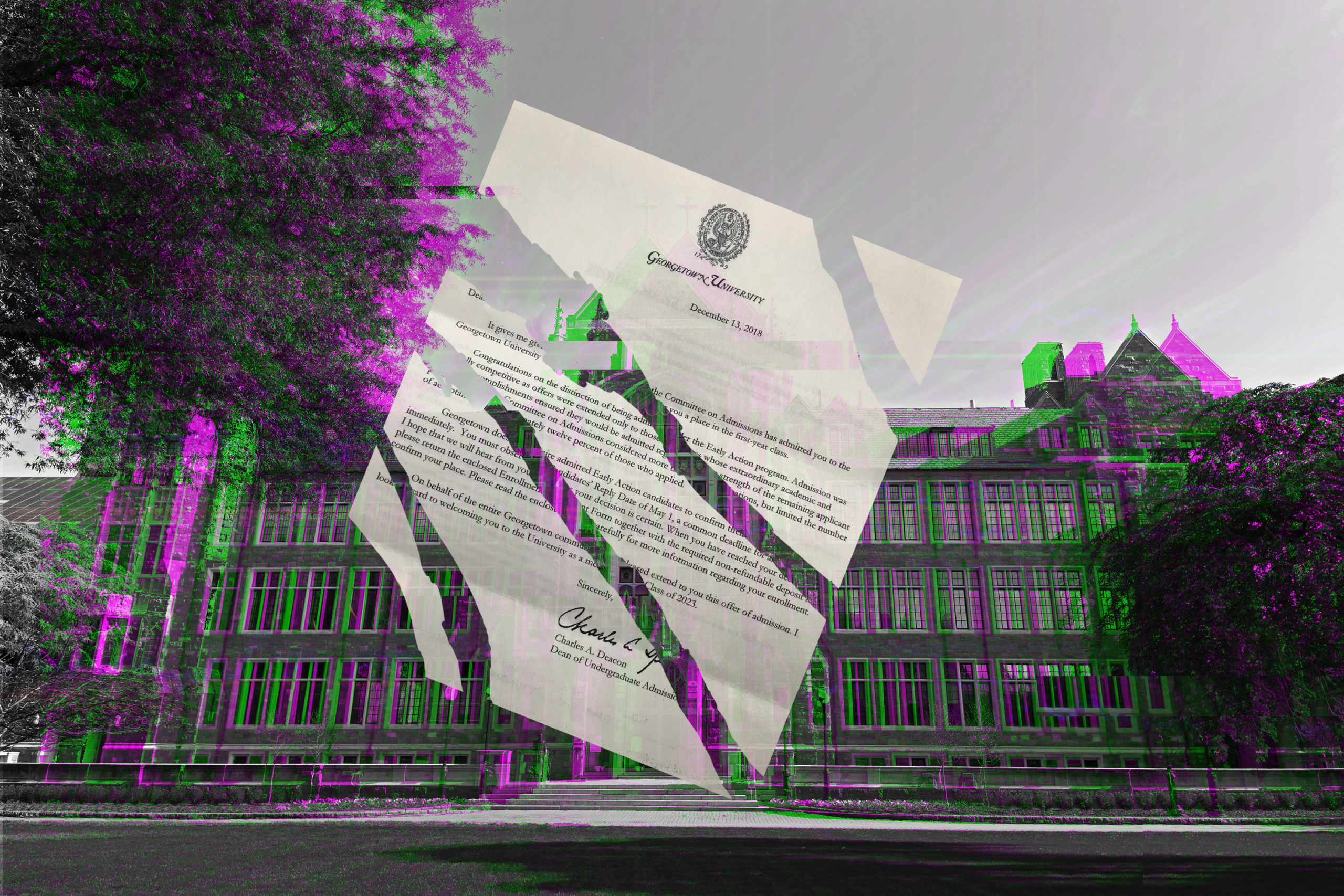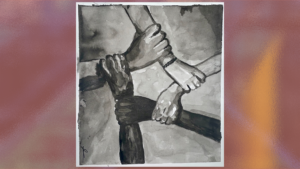As everyone on campus knows, applying to Georgetown is a tough process. Georgetown’s separate application is more consequential than just an additional barrier: It lacks a key element present in other applications for students facing unique external circumstances. This failure is easily rectifiable, but its persistence is a deviation from the value of cura personalis it holds so dear.
For most of the high school class of 2021, it was clear that college admissions understood the context behind lower grades and higher absences; after all, admissions officers were living through the pandemic themselves. And for those that wished to explain any extraordinary elements of their circumstances, colleges within the Common App offered students a text box to include specific information that wouldn’t be found in their required essays or transcripts.
For students applying to Georgetown, however, the process was not so understanding. Unlike the Common App, Georgetown applicants can only submit three writing pieces—two prompt-based essays and a personal statement—leaving no additional space to explain external circumstances. Even when the pandemic ends, there will always be students facing external circumstances that cause their grades to suddenly drop or their absences to suddenly skyrocket. Georgetown’s failure to provide an opportunity to account for these circumstances flies in the face of one of its central Jesuit values, cura personalis, which promotes care for the whole person.
Without the world burning so brightly in the background, college admissions officers are likely to no longer have the initial sympathy the pandemic brought about. No matter the context around applicants’ dropping grades and heightened absences, with no chance for a student to explain their circumstances, those numbers alone can be enough for colleges to toss aside someone’s application—especially schools as selective as Georgetown.
But is that really enough information to base admissions decisions on?
I am a student who played the numbers game well: great GPA, perfect attendance. But Yasmeena, a close friend of mine from high school and the person who introduced me to the idea of attending Georgetown in the first place, was not so lucky.
With an intense passion for global health and international relations, Yasmeena had dreamed of attending Georgetown ever since middle school, when her father introduced her to the university. In the midst of her sophomore year of high school, however, an accident left her father unable to work and in need of constant supervision. As the eldest of three daughters, she was frequently required to miss school in order to take care of her family. Despite her absences, she worked hard to keep her grades up, coming in whenever she could to make up missed work and tests and submitting whatever homework she could get on time. Her grades only dropped slightly—almost a miracle considering that she would miss school an average of three days per week.
Yasmeena thought that her family circumstances would be considered alongside her essays and transcripts. However, upon researching typical Georgetown admits and finding that no one seemed to have gone through a similar situation to her, she felt disheartened.
Yasmeena’s worry had little to do with her ability to articulate her experiences and more to do with the underlying structure of Georgetown’s unique admission process, which limited her from holistically articulating both her situation and other facets of her personhood.
Yasmeena said she attempted to write about her external circumstances within her personal statement. When I asked her about it, however, she felt that the prompts did not allow her to explain what she wanted without losing track of the original prompt or making it sound like she was basing her personality around her circumstances. Without space to specifically note extenuating circumstances, Yasmeena had to devote valuable real estate in her writing to explain external circumstances that would be better communicated somewhere else.
When college decision letters arrived, she smiled as she told me she didn’t get in, holding her rejection letter in stark contrast to my acceptance letter. She showed me nothing but support, and even when I insisted she could be upset, she simply said she’d try to transfer and promptly started preparing to take the two tests she missed because she had to take her father to physical therapy.
Yasmeena said she understood that most students that were admitted to Georgetown were at the top of their class. However, she says, and I concur, that it is “unrealistic to expect students to keep up with their attendance if they have circumstances that don’t allow them.” Georgetown’s application needs to include a section to contextualize students at home facing adversity and how their performance may develop on-campus. Yasmeena also points out that “most other institutions have a section about external circumstances in their application. So, it would have only made sense for GU to have one too, considering their Jesuit affiliation.”
And she’s entirely right.
Thankfully, she was able to get into another college—but if anyone deserved to get into Georgetown, it was her. And, had she had the freedom most students do to use her personal statement as she saw fit rather than being forced to spend it describing her particular hardships, there’s a much greater chance she would have.
If Georgetown is serious about the holistic approach it promises to uphold—and should uphold—within its Jesuit traditions, there should be more opportunities for students to explain external circumstances without having to sacrifice space in the essential essays they need to show themselves as a person. As Yasmeena states, students’ circumstances don’t define who they are, but they do affect other parts of their lives that change what the college admissions officers see.
Embodying cura personalis means not only focusing on one’s academic self but also one’s emotional and spiritual self; Yasmeena had to sacrifice her academic self to take care of other parts of herself. This sacrifice begs the deeper issue of equity, especially when it comes to Georgetown’s application and providing a “fair playing field” for all who apply. At the very least, if Georgetown really promoted cura personalis and promoted care for the whole person, it’d do the bare minimum of adding another text box to their application.






